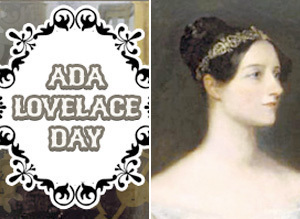Today marks the Ada Lovelace day, celebrating the achievements of women in science, technology, engineering and maths around the world. Ada was Lord Byron's daughter, one of the first mathematicians and a scientist whose research notes inspired Alan Turning’s work on the first modern computers in the 1940s.
One of the women scientists who have inspired me is Dr. Irene Pepperberg, who tiredlessly worked with Alex, perhaps the most famous African grey parrot, to discover intelligence in an animal whose brain does not surpass the size of a shelled walnut. The discovery was proven to be comparable to human intelligence and from there on, it opened the door to all the concepts of animal cognition. This incredible journey and its effects on so many levels but also the relationship between Irene and Alex is the subject of the book Alex & Me: How a Scientist and a Parrot Discovered a Hidden World of Animal Intelligence--and Formed a Deep Bond in the Process.
The book as such should not be read as a work of literature, but rather as a testimony to the hard work of Pepperberg, at a time when women scientists were not yet widely accepted, when married women scientists were definitely not accepted, and when married women scientists in a field that few understand... well, let's just say she did not have an easy start in her career! One point I should also mention here is that this is not a technical book about the outcome of her studies with Alex, but an insight into her years of working with him.
Alex and me starts with the aftermath of Alex's death and Irene's feeling of complete loss - this is not the best possible beginning. I was reading it in on my flight back home, and had to stop just to compose myself (crying in front of strangers is not my idea of fun...). I appreciated the expression of her intimate feelings following Alex's death, but I was also pleased to see no "sentimentality" from then onwards. Pepperberg can prove she's been successful at her work without having to resort to such tricks.
From the beginning, working with a parrot was difficult. Getting funding to carry out experiments was even more difficult. Did this stop Pepperberg? No, because from the beginning she believed she wanted "be the change you want to see in the world". And she kept going despite "the prevailing psychological dogma known as behaviourism, where animals were seen as automatons, with little or no capacity for congnition, or thought".
The book then moves on to the introduction of Alex, who, while it would be romantic to think is named after a loved or famous person, is in reality an abbreviation: "Avian Language EXperiment". Pepperberg is very tender in her dealings with Alex, and this is I am convinced the secret to her success in the field. She is more than "that woman who talks to a parrot", she believes in his abilities, she's creative in continuing her studies with him when funding is short by baking cookies and she spends personal as well as professional time with Alex, to the point that several years later they made an impression of "squabbling like an old married couple"...
The book made me read further articles about Pepperberg's work and I was astounded to find that her results did not stop at the amazing discovery that we humans are not the only creatures to "think". Alex was found to "produce sounds that, accoustically, are very similar to the ones that humans produce". Having the intelligence of a 5-year old human and the social skills of a 2-year old, Alex served as a basis for further studies: Pepperberg says her research on talking with birds has also had benefits for humans "A colleague has used our training techniques--a two-person modeling system--with autistic children to help them learn speech and communication skills". Not bad for a little bird then...


Happy Ada Day and congrats on the lovely new design :)
ReplyDeleteI've recently saw a documentary about Dr. Pepperberg and Alex and was fascinated.
Thanks Alex! I was fascinated as well! Glad you enjoyed it.
DeleteWhat an interesting lady!
ReplyDeleteHer life story and her work are truly inspiring!
DeleteDr. Peppenberg sounds like an admirable scientist who shirked nothing to achieve her goal. And she did it, despite all the setbacks :)
ReplyDeleteShe was an unexpected inspiration. Given that I read the book for my lit group, I was not expecting much - was really pleasantly surprised!
Delete